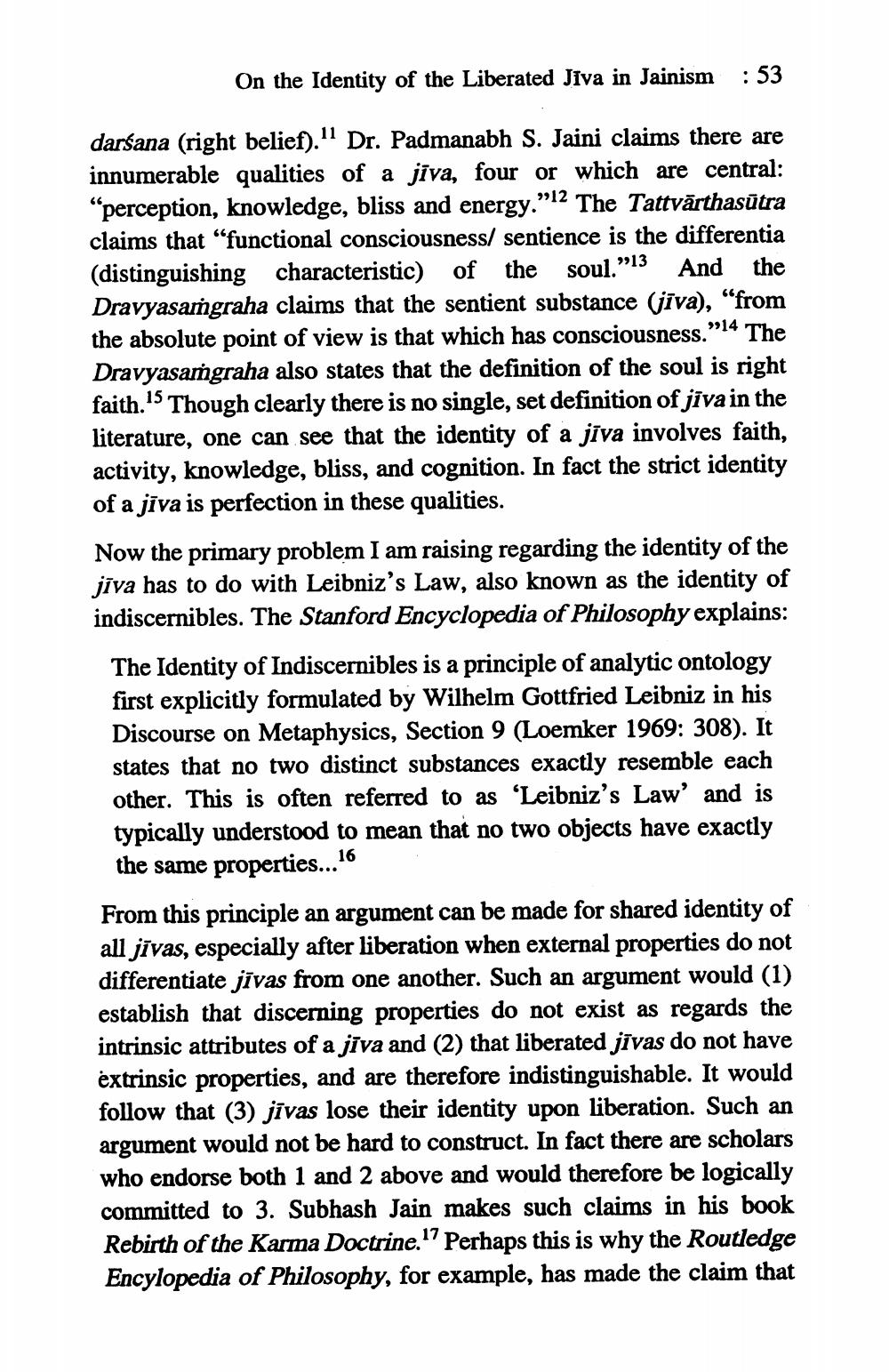________________
On the Identity of the Liberated Jiva in Jainism
: 53
darśana (right belief)." Dr. Padmanabh S. Jaini claims there are innumerable qualities of a jiva, four or which are central: "perception, knowledge, bliss and energy."!2 The Tattvārthasūtra claims that “functional consciousness/ sentience is the differentia (distinguishing characteristic) of the soul.”13 And the Dravyasargraha claims that the sentient substance (jīva), "from the absolute point of view is that which has consciousness.”l4 The Dravyasaṁgraha also states that the definition of the soul is right faith." Though clearly there is no single, set definition of jiva in the literature, one can see that the identity of a jīva involves faith, activity, knowledge, bliss, and cognition. In fact the strict identity of a jīva is perfection in these qualities. Now the primary problem I am raising regarding the identity of the jiva has to do with Leibniz's Law, also known as the identity of indiscernibles. The Stanford Encyclopedia of Philosophy explains:
The Identity of Indiscernibles is a principle of analytic ontology first explicitly formulated by Wilhelm Gottfried Leibniz in his Discourse on Metaphysics, Section 9 (Loemker 1969: 308). It states that no two distinct substances exactly resemble each other. This is often referred to as 'Leibniz's Law and is typically understood to mean that no two objects have exactly the same properties... O From this principle an argument can be made for shared identity of all jīvas, especially after liberation when external properties do not differentiate jīvas from one another. Such an argument would (1) establish that discerning properties do not exist as regards the intrinsic attributes of a jīva and (2) that liberated jīvas do not have extrinsic properties, and are therefore indistinguishable. It would follow that (3) jīvas lose their identity upon liberation. Such an argument would not be hard to construct. In fact there are scholars who endorse both 1 and 2 above and would therefore be logically committed to 3. Subhash Jain makes such claims in his book Rebirth of the Karma Doctrine." Perhaps this is why the Routledge Encylopedia of Philosophy, for example, has made the claim that




